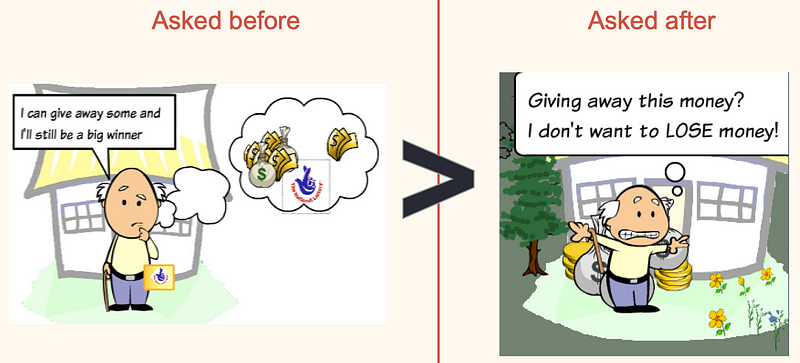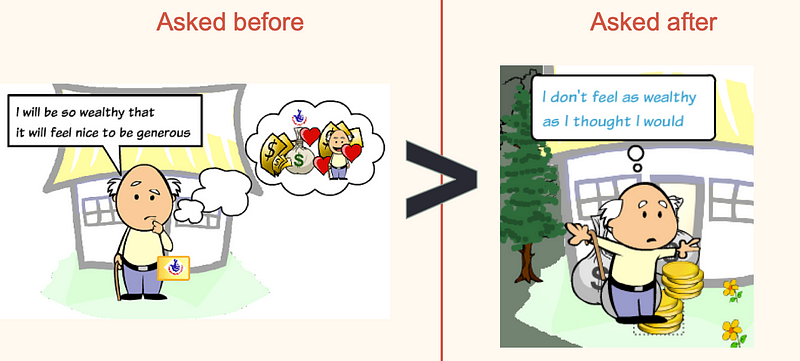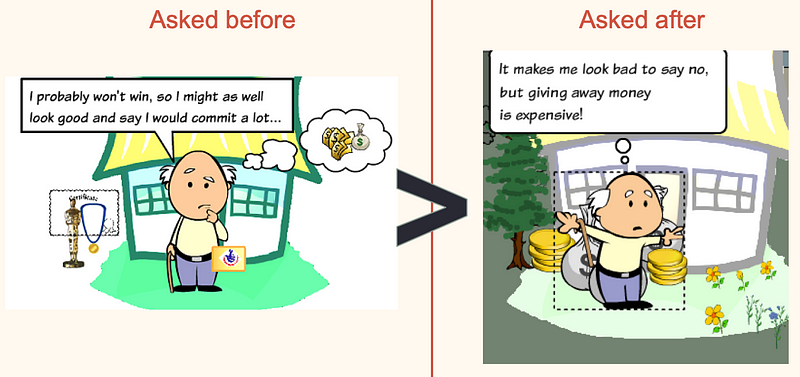The Intriguing Psychology Behind Generosity and Wealth
Written on
Chapter 1: Understanding the Motivation to Give
What drives us to donate? Is it genuine compassion, or do we give because it brings us joy? Furthermore, how do our financial windfalls influence our willingness to contribute?

Imagine you might inherit a large sum from a relative. Would you commit to donating a portion of it to charity? Research indicates that if you were uncertain about your inheritance, you might be inclined to make a pledge. However, once you receive the money, your generosity might wane.
The dynamics of our giving behavior remain somewhat enigmatic, yet research is shedding light on this complex issue.
Section 1.1: The Reasons Behind Giving
Numerous studies suggest that donating can enhance our happiness, a notion that seems reasonable. Nevertheless, empirical evidence supporting this claim is often limited, particularly regarding long-lasting joy. Much of the research relies on controlled environments using hypothetical money or points.
Social psychologist Elizabeth Dunn from the University of British Columbia conducted experiments showing a connection between happiness and giving, but only when individuals donated rather than spent money on personal items. Dunn posited that while a single act of giving might bring temporary happiness, integrating generosity into daily life could yield lasting benefits.
However, many studies grapple with the question of causality: Does being generous foster happiness, or are happy individuals simply more inclined to give?
Moreover, the ethical dilemma of whether we give out of altruism or for personal gratification (like tax breaks) remains largely unresolved. Some findings indicate that people are more inclined to donate when they receive something in return, suggesting a level of self-interest that diminishes the purity of their gift.
Don’t expect a definitive answer to the altruism debate anytime soon.
Section 1.2: The Impact of Unexpected Wealth
What’s particularly intriguing—and easier to analyze—is how perceptions of money and giving shift when individuals suddenly acquire wealth.
Research indicates that when people receive unexpected financial gains, such as lottery winnings or inheritances, they tend to be more willing to donate a portion compared to their regular earnings.
However, this narrative isn’t straightforward. David Reinstein, an economics lecturer at the University of Exeter, provides insight into this phenomenon.
In a web survey involving several hundred participants from the UK, some were informed of a 50/50 chance of winning £10 (approximately $13). Before they were made aware of any winnings, some were asked if they would consider donating part of their potential prize to charity, while others were only asked after learning they had won.
Those who were prompted about their willingness to give prior to knowing their outcome were 50% more likely to donate, and their contributions were twice as generous compared to the second group.
“Individuals demonstrate greater generosity before they know their financial outcome,” Reinstein explains, co-author of a study featured in the January edition of the Journal of Public Economics.
For the record: Participants who won received actual payouts; donations were genuinely made, and those who did not win received nothing.
Chapter 2: What Drives Generosity?
I inquired with Reinstein about why financial windfalls might shift people from being generous to more reserved. His team, drawing from their research and existing studies, proposed several explanations, illustrated through three simple cartoons:

- People quickly adapt to having money and become hesitant to part with it, a concept known as "loss aversion" or the "endowment effect."

- Individuals tend to be more generous when dealing with less tangible assets, and their perception of money alters once they possess more of it.

- “People often seek to build reputation and self-worth by committing to future altruistic actions,” Reinstein notes. This can sometimes lead individuals to promise larger contributions based on uncertain future outcomes.
Will a modest sum like £10 impact a person’s willingness to give as much as a massive lottery win? Reinstein acknowledges the disparity but asserts that findings from larger sums of money suggest these motivations are likely applicable to real windfalls.
This insight carries significant implications for fundraising strategies, as highlighted by Reinstein.
He suggests that the optimal time for soliciting donations is before individuals come into substantial wealth.
Reinstein aims to further test his theories through his initiative, Give if You Win. This platform encourages businesses and charities to collaborate, motivating employees to pledge a portion of their year-end bonuses before knowing the actual amounts.
He believes these commitments could make the culture surrounding large corporate bonuses more socially responsible. “When those in finance succeed, charities also benefit,” he concludes.
The first video, "The Dark Psychology Of Giving," explores the underlying motivations behind why we choose to give, highlighting the psychological complexities involved.
The second video, "The Psychology of Giving - Lara Aknin: Why Giving Feels Good," delves into the positive feelings associated with generosity and the science behind it.